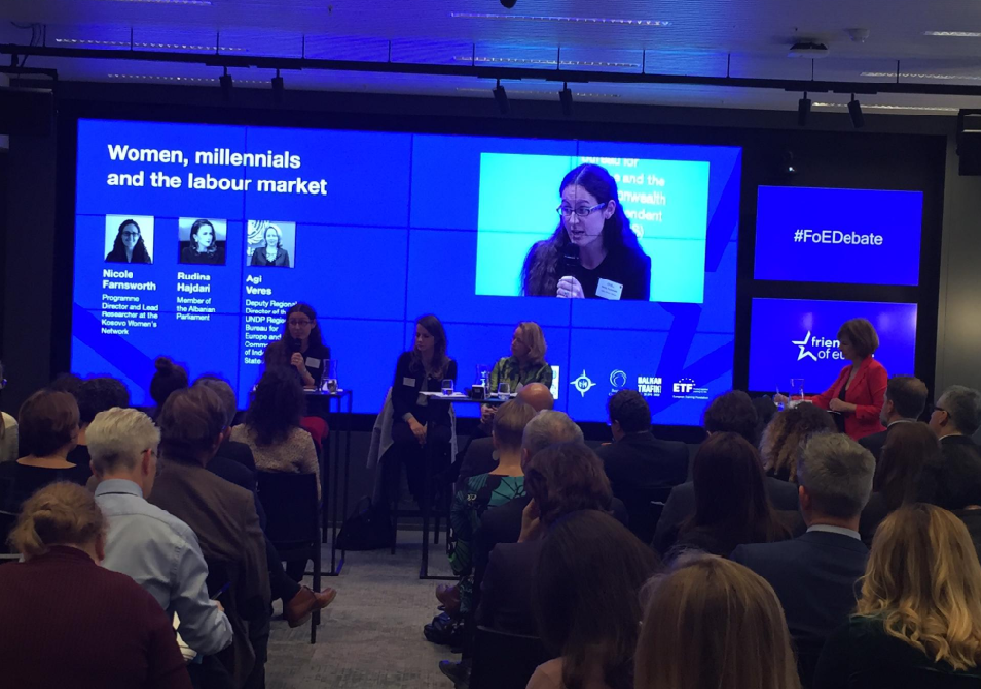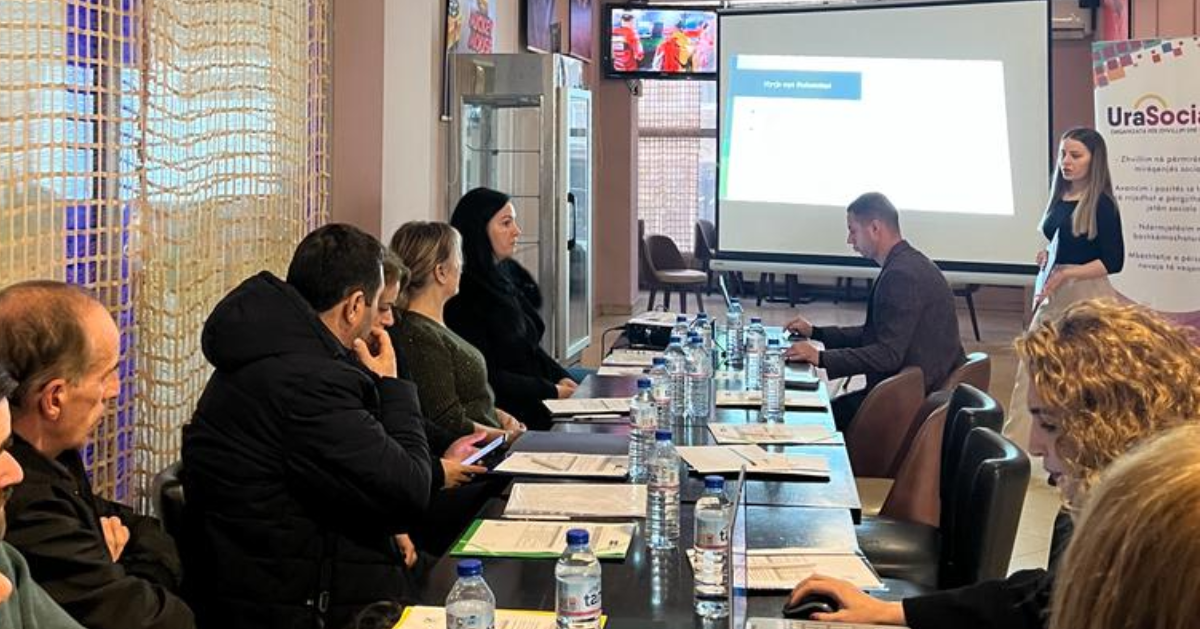Kosovo Women’s Network representative Nicole Farnsworth spoke on behalf of the Regional Coalition against Gender-based Discrimination in Labour at a European Policy Summit on the Western Balkans (WB), organized by the Friends of Europe.
During the roundtable on “Women, millennials and the labour market”, she presented key issues undermining women’s labour force participation. To address these, she recommended that the EU and governments:
- Invest in affordable childcare and early education;
- Amend labour laws in line with the EU Work-life Balance Directive towards giving women and men more rights to spend more paid time with their children;
- Further the capacities of labour inspectors to treat gender-based discrimination at work;
- Ensure that planned interventions to address the informal economy are based on gender impact analysis, so that they have a “do no harm” approach.
Additionally, she said that the EU can continue to follow gender-based discrimination and labour in country reports, using political dialogue and funding to pressure governments to make reforms.
In conclusion she emphasized that the EU must finish the visa liberalization process.
“Keeping Kosovo’s youth in a ghetto is not only incredibly discriminatory,” she said, “It’s dangerous, making youth suspectable to non-European paths, including extremism. If the EU really wants to support youth, visa liberalisation is essential for young people to have opportunities to travel, learn, understand and relate to people in Europe”.
The international conference gathered EU and WB policymakers, government officials, representatives from businesses and international organisations as well as leading academics and journalists.
Oher topics discussed relating to “Women, millennials and the labour market” included:
- How is the EU encouraging the inclusion of youth and women in the Western Balkans labour market?
- What measures can the region’s governments take to effectively counter the ‘brain-drain’?
- Does the education system in Western Balkans countries prepare youth for the challenges of modern labour market?
Other topics discussed at the summit included WB and EU relations in the current geopolitical environment (“A Dance without Partners?”); digital transformation; and the challenges of reconciliation.
Speakers included Hashim Thaçi, President of Kosovo; Christian Danielsson, Director General at the European Commission Directorate General for Neighbourhood and Enlargement Negotiations; Tanja Fajon, Chair of the European Parliament Delegation to the EU-Serbia Stabilisation and Association Parliamentary Committee and Trustee of Friends of Europe; and Majlinda Bregu, Secretary General of the Regional Cooperation Council, among others.
The Regional Coalition against Gender-based Discrimination in Labour involves six women’s rights groups from the WB; Reactor – Research in Action from North Macedonia, Gender Alliance for Development Centre from Albania, Helsinki Citizens’ Assembly Banja Luka from Bosnia and Herzegovina, Women’s Rights Centre from Montenegro, and the Kvinna till Kvinna Foundation. The findings and recommendations presented drew from their latest research on Gender-based Discrimination and Labour in the Western Balkans, supported by the EU and co-funded by Sida.
More about the event HERE







